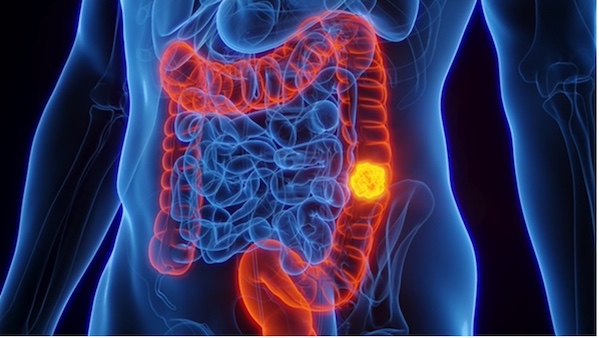Artificial Intelligence Test Determines Risk of Bowel Cancer Recurrence After Surgery
August 5, 2024
Source: drugdu
 366
366
 Bowel cancer, commonly referred to as colorectal cancer, can develop anywhere in the large bowel, including the colon and rectum. It ranks among the most prevalent cancers globally, with 1.9 million new cases recorded in 2020. The current protocols for determining the need for chemotherapy for patients with early-stage bowel cancer are not consistently reliable. As a result, some patients receive chemotherapy unnecessarily, while others who might benefit from it do not receive it and may face cancer recurrence. This decision is particularly challenging for stage II colon cancer, where the risk of recurrence post-surgery is generally lower. Now, a new artificial intelligence (AI) test can predict the risk of recurrence in bowel cancers, potentially helping patients avoid unnecessary chemotherapy. This test employs an AI algorithm to measure the concentration of immune cells known as CD3 in tumors at the early stages of bowel cancer.
Bowel cancer, commonly referred to as colorectal cancer, can develop anywhere in the large bowel, including the colon and rectum. It ranks among the most prevalent cancers globally, with 1.9 million new cases recorded in 2020. The current protocols for determining the need for chemotherapy for patients with early-stage bowel cancer are not consistently reliable. As a result, some patients receive chemotherapy unnecessarily, while others who might benefit from it do not receive it and may face cancer recurrence. This decision is particularly challenging for stage II colon cancer, where the risk of recurrence post-surgery is generally lower. Now, a new artificial intelligence (AI) test can predict the risk of recurrence in bowel cancers, potentially helping patients avoid unnecessary chemotherapy. This test employs an AI algorithm to measure the concentration of immune cells known as CD3 in tumors at the early stages of bowel cancer.
Previous studies have indicated that bowel and rectal tumors with a higher presence of CD3 immune cells have a reduced likelihood of recurrence after surgical removal. This is attributed to the ability of CD3 cells to combat cancer, aiding the body's response to the disease. In the latest study by researchers at the University of Leeds (West Yorkshire, UK), the CD3 Score test effectively identified which stage II cancers were more prone to recurrence within five years post-surgery. This information could aid clinicians in determining the need for additional treatments, such as chemotherapy. The study analyzed tissue samples from 868 bowel tumors classified as stage II and III to quantify the CD3 cells present within the tumors.
The AI algorithm developed by the research team calculated a 'CD3 Score' based on the distribution of CD3 cells throughout the tumor. Tumors assigned a high-risk CD3 Score displayed fewer immune cells, whereas those with a low-risk score exhibited a higher number of immune cells. Tumors categorized with a high-risk CD3 Score were three times more likely to recur within five years of surgery compared to those with a low-risk score. Although chemotherapy reduced recurrence rates in both groups, the study further revealed that patients with fewer immune cells gained the most from chemotherapy. These findings, published in the Journal of Clinical Oncology, could assist doctors in making informed decisions about administering chemotherapy following bowel cancer surgery.
“This has the potential to be the most important test patients with early-stage bowel cancer ask for. It’s fast, accurate and simple, and we hope it will make conversations about chemotherapy after surgery much more straightforward for patients and their doctors,” said lead author Dr. Christopher Williams, Cancer Research UK Clinical Trials Research Fellow in the University of Leeds’ School of Medicine.
Source:
https://www.labmedica.com/molecular-diagnostics/articles/294802058/artificial-intelligence-test-determines-risk-of-bowel-cancer-recurrence-after-surgery.html
Read more on
- Gan & Lee Pharmaceuticals’ new PROTAC drug GLR2037 tablets have been approved for clinical trials to enter the field of prostate cancer treatment March 3, 2026
- AideaPharmaceuticals plans to raise no more than 1.277 billion yuan through a private placement to focus on the global clinical development of innovative HIV drugs March 3, 2026
- Giant Exits! Its Star Business Acquired March 3, 2026
- Focusing on cardiovascular and cerebrovascular diseases! OpenMediLead Medical Intelligence Dual Engines Launch Internal Testing, Connecting Drug Development and Clinical Diagnosis in a Closed Loop March 3, 2026
- Innovent Biologics Announces Approval of New Indication for BTK Inhibitor “Pitubrutinib” in China March 3, 2026
your submission has already been received.
OK
Subscribe
Please enter a valid Email address!
Submit
The most relevant industry news & insight will be sent to you every two weeks.



